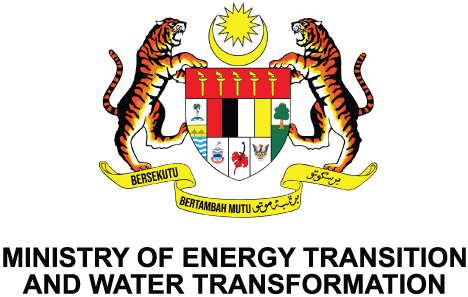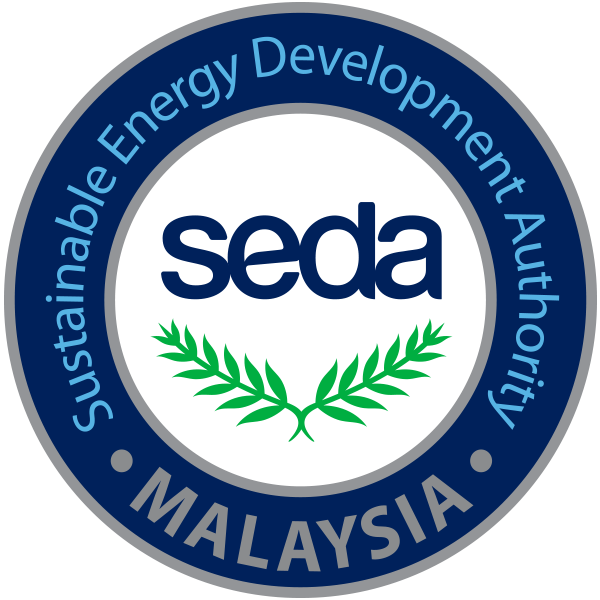| 11:00am |
Main Plenary
Venue:
Plenary Hall, Kuala Lumpur Convention Centre
Energy Leaders Dialogue: Accelerating Energy Transition Through Innovation
Accelerating the energy transition through innovation necessitates robust industry policies and a clear focus on decarbonisation. Effective policies should foster research and development, support clean energy deployment, and encourage public-private partnerships. Key requirements include significant investment in technology, a skilled workforce, and infrastructure upgrades, all backed by regulatory support. Achieving net-zero emissions hinges on common goals and global cooperation, with a unified vision like the Paris Agreement guiding efforts. International collaboration, standardisation, and public engagement are vital for sharing knowledge and driving collective action towards a sustainable energy future.
Panellists:
-
Datuk Ir. Megat Jalaluddin Megat Hassan, President / Chief Executive Officer of Tenaga Nasional Berhad
-
James Ung, Group COO of Sarawak Energy Berhad
-
Ir. Ts. Mohd Yaakob Hj Jaafar, Chief Executive Officer of Sabah Electricity Sdn. Bhd
Moderator:
Freda Liu, Broadcast Presenter of Author and Adjunct Professor
|
| 12:00pm |
Plenary Session 1
Venue:
Plenary Hall, Kuala Lumpur Convention Centre
Just Energy Transition:
Advancing a just energy transition involves addressing the dimensions of justice within the energy transition context, ensuring that the shift to sustainable energy is equitable and inclusive. This requires acknowledging and mitigating the social and economic impacts of the transition, such as job displacement and energy affordability, particularly for vulnerable communities. A robust policy framework is essential, incorporating measures that promote fairness and support affected workers and communities. Additionally, corporate initiatives must align with these policies, focusing on sustainable practices and equitable growth to ensure that the benefits of the energy transition are widely shared and contribute to social justice.
Special Remarks (Video) by Damilola Ogunbiyi
CEO and Special Representative of UN Secretary-General for Sustainable Energy for All & Co-Chair of UN-Energy
Panellists:
-
Beni Suryadi, Deputy Executive Director of ASEAN Centre for Energy (ACE)
-
Prof. Dr. Jomo Kwame Sundaram, Research Advisor of Khazanah Research Institute
-
Jie Tang, Practice Manager of Energy & Extractive Global Practice of The World Bank
Moderator:
Freda Liu, Broadcast Presenter of Author and Adjunct Professor
|
| 2:00pm |
Deep Dive Workshop 1
Venue:
Plenary Hall, Kuala Lumpur Convention Centre
Green Mobility:
Green mobility is key to achieving zero emissions, with electric vehicle (EV) charging infrastructure playing a crucial role. A robust regulatory framework and sustainable business models are essential to expand EV charging stations, ensuring accessibility and reliability. Additionally, bidirectional charging market mechanisms, such as Vehicle-to-Grid (V2G) and Vehicle-to-Home (V2H), enhance grid stability and energy efficiency. These technologies allow EVs to not only draw power but also supply it back to the grid or home, creating a dynamic and resilient energy ecosystem. Together, these innovations are driving the shift towards a cleaner and more sustainable transportation future.
Panellists:
-
Roslan Abdullah, Deputy CEO of PROTON Holdings Berhad
-
Haikal Zubir, Chief Operating Officer of Gentari Green Mobility
-
Muhammad Yazurin Sallij Muhammad Yasin, Chief Executive Officer of Rapid Bus
-
Hezeri Samsuri, Founder and Managing Director of Careta.My
-
Syed Ahmad Muzri Syed Faiz, Managing Director of Vantage Malaysia by Sime Darby Motors
Moderator:
Robert Lejon, Deputy Head of Mission of Embassy of Sweden to Malaysia
|
Deep Dive Workshop 2
Venue:
Hall 6A, Kuala Lumpur Convention Centre
Technology and Innovation (Digitalisation-AI, IR4 & IoT):
Innovation and technology are pivotal in shaping the future of energy, with breakthroughs like AI, energy storage, and renewable energy technologies leading the charge. AI serves as a catalyst for a sustainable future by optimising energy systems, predicting maintenance needs, and enhancing energy efficiency. Advances in energy storage and renewable energy technologies, particularly solar and wind, are crucial for overcoming intermittency issues and ensuring a reliable energy supply. Furthermore, smart monitoring and energy management systems enable real-time data analysis and control, improving efficiency and reducing waste. Together, these innovations are driving a transformative shift towards a more sustainable and resilient energy landscape.
Panellists:
-
Muhammad Shafiq Mohd Taib, Lead, Policy & Sustainability, MRANTI
-
Assoc. Professor Ts. Dr. Mohd Ibrahim Shapiai @Abd Razak, Director of Center for Artificial Intelligence and Robotics (CAIRO), Universiti Teknologi Malaysia (UTM)
-
Dr. Mahathir Almashor, Senior Engineer of CSIRO
-
Leon Liew, Executive Director & Chief Strategy Officer of Solarvest Holdings Berhad
-
Monika Merdekawati, Senior Research Analyst for Sustainable and Renewable Energy of ASEAN Centre for Energy (ACE)
Moderator:
Ir. Wan Murdani bin Wan Mohamad, Vice President/Head of Digital Industry Acceleration of Malaysia Digital Economy Corporation (MDEC)
|
| 4:00pm |
Deep Dive Workshop 3
Venue:
Plenary Hall, Kuala Lumpur Convention Centre
Grid Modernisation:
Grid modernisation is essential for developing the grid of the future, playing a crucial role in reducing greenhouse gas emissions. Upgraded grids can integrate renewable energy sources more efficiently, reducing reliance on fossil fuels and lowering emissions. Adapting grids to accommodate the energy transition involves implementing smart technologies and enhancing grid flexibility to manage variable renewable energy supply. Regulatory implications are significant, as supportive policies and regulations are necessary to facilitate grid modernization, ensure reliability, and promote investments in advanced grid technologies. Together, these efforts are critical for achieving a sustainable and resilient energy infrastructure.
Panellists:
-
Hasmarizal Bin Hassan, Chief Grid Officer of Tenaga Nasional Berhad
-
Dr. Amir Hisham Hashim, General Manager of PSC Consulting Asia
-
Dr. Konstantin Petrov, Managing Consultant/Director of DNV Energy Systems
-
Dr. Roshan Bhattarai, Manager of NEOM Energy & Water (ENOWA), NEOM
-
Ir. Shanmugam Thoppalan, Head of Grid System Operator (GSO)
Moderator:
Ir. Alex Looi, Secretary of IEM Electrical Engineering Technical Division of IEM
|
Deep Dive Workshop 4
Venue:
Hall 6A, Kuala Lumpur Convention Centre
ESG-Driven Impact Investing and Innovative Finance:
ESG-driven impact investing and innovative finance are pivotal for advancing sustainable energy projects. Creative financing schemes, such as green bonds, sustainability-linked loans, and crowdfunding platforms, provide essential capital for sustainable energy investments. Successful projects in the region, supported by these innovative financing mechanisms, demonstrate the potential for scalable and impactful sustainable energy solutions. Additionally, sustainable finance policies and legislation set rigorous standards and provide clear frameworks for sustainable investments, fostering a supportive environment for innovative financing and driving the transition towards a green economy.
Panellists:
-
Dato' Dr. Ir. Muhamad Guntor Mansor Tobeng, Managing Director of Gading Kencana Sdn Bhd
-
Hazmi Yusof, Country Head of Frost & Sullivan Malaysia
-
Yin Shao Loong, Deputy Director of Research of Khazanah Research Insititute
-
Dr. Nurmazilah Dato’ Mahzan, Board Member of SEDA Malaysia
-
Yoonmee Jeong, Managing Director, Head of Sustainability Office, Global Wholesale Banking of OCBC
Moderator:
Azreen Idayu Zainal, General Manager and Head of the Sustainability Department of Securities Commission Malaysia
|



























